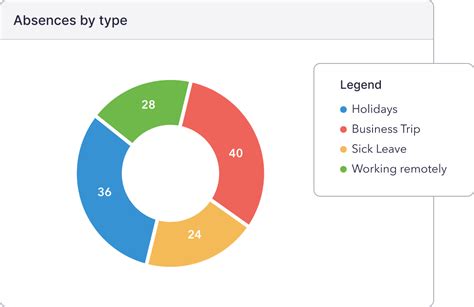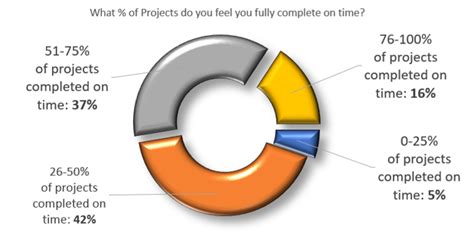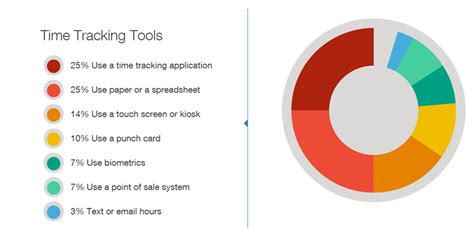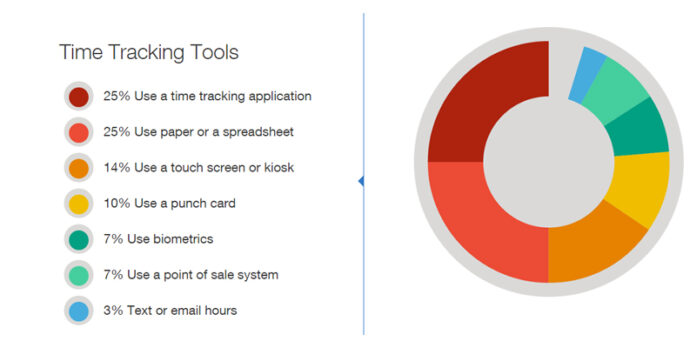In today’s fast-paced world, managing time effectively has become crucial for both personal and professional success. Time tracking, the practice of monitoring how time is spent on various tasks, offers valuable insights into productivity and efficiency. By keeping a detailed record of activities, individuals and businesses can identify areas for improvement, optimize workflows, and achieve better time management. This article explores the significance of time tracking, delving into its numerous benefits for both individuals and organizations. We will examine different methods of time tracking, provide practical tips for implementation, and highlight real-life case studies to illustrate its impact. Discover how time tracking can be a game-changer in maximizing produc
Delve into this topic with rosawblog.com for a comprehensive understanding.
1. Introduction
In today’s fast-paced world, where every minute matters, effective time management is crucial. Time tracking, the process of monitoring and recording how time is spent on different tasks, has become an invaluable tool for boosting productivity and efficiency. By meticulously keeping track of time allocated to various activities, individuals and organizations can gain valuable insights into their work patterns and identify areas where improvements can be made.
Time tracking offers more than just personal productivity benefits. Businesses can leverage it to gain a clear understanding of resource allocation, streamline processes, and ultimately improve overall performance and profitability. By analyzing how time is spent, teams can effectively manage workloads, prevent burnout, and prioritize tasks that deliver the highest impact.
This article explores the wide-ranging benefits of time tracking, examining its advantages for both individuals and businesses. We’ll delve into various time tracking methods, provide practical tips for successful implementation, and showcase real-life examples demonstrating its transformative power. Discover how time tracking can revolutionize the way you manage your time.

2. Importance of Time Tracking
Time tracking is essential for effective time management, offering a clear view of how time is allocated to different tasks and projects. This visibility empowers individuals and organizations to identify inefficiencies, prioritize tasks strategically, and make informed decisions about resource allocation. For individuals, time tracking unveils patterns of productivity and distraction, revealing areas for improvement and facilitating better planning and goal-setting.
Time tracking is a crucial tool for businesses, providing valuable insights into workflow processes and enabling managers to optimize operations and improve team performance. It allows for accurate assessment of project costs, setting realistic deadlines, and ensuring efficient resource allocation. Furthermore, by tracking time, businesses can foster transparency and accountability, creating a more disciplined and productive work environment.
In conclusion, time tracking equips individuals and organizations with the tools to manage their time wisely, resulting in enhanced productivity, lower stress levels, and the successful attainment of both short-term and long-term objectives.

3. Benefits for Individuals
Time tracking delivers substantial benefits to individuals, boosting their productivity and overall effectiveness. Primarily, it offers a clear picture of how time is utilized, revealing areas for improvement. Recognizing time-consuming activities and distractions enables individuals to make informed decisions about time allocation, fostering more efficient work habits.
By tracking time spent on tasks, individuals can enhance their goal-setting and planning processes. Detailed records of past activities provide a solid foundation for setting realistic goals, creating more accurate schedules, and monitoring progress. This fosters a focused approach to essential tasks and promotes effective workload management.
Furthermore, time tracking contributes to stress reduction and burnout prevention by encouraging a balanced work-life approach. By providing visibility into time allocation, individuals can prevent overwork and prioritize sufficient time for rest and personal activities.
Time tracking offers a powerful tool for personal growth and achievement. By taking control of their time, individuals can boost productivity, achieve a better work-life balance, and ultimately experience greater personal satisfaction and success.

4. Benefits for Businesses
Time tracking offers significant benefits for businesses, driving operational efficiency and ultimately success. By meticulously monitoring time spent on tasks and projects, organizations gain valuable insights into potential inefficiencies. This knowledge enables them to streamline workflows and optimize resource allocation. The result is enhanced productivity, as employees prioritize high-impact activities and eliminate unproductive practices.
Time tracking improves project management by offering precise data on time spent, enabling the setting of achievable deadlines and effective cost control. This information is vital for budgeting and financial planning, ensuring efficient resource allocation and keeping projects within budget.
Moreover, time tracking fosters accountability and transparency within teams. By enabling managers to monitor performance, assess employee contributions, and provide targeted feedback, it creates a more disciplined work environment and supports better decision-making.
In summary, time tracking is a valuable tool for businesses. By effectively monitoring time spent on tasks, businesses can streamline operations, optimize resource allocation, and enhance overall performance, ultimately contributing to increased productivity and profitability.
5. Different Time Tracking Methods
Various time tracking methods exist, each catering to specific needs and preferences.
Manual time tracking entails recording the time dedicated to tasks through the use of pen and paper or a spreadsheet. This method, while simple and flexible, is susceptible to inaccuracies and necessitates consistent updates.
Digital time trackers are software programs that automate the process of recording time spent on tasks. These tools typically offer features such as timers, comprehensive reports, and integration with other productivity applications. Some popular examples include Toggl, Harvest, and Time Doctor, which can provide in-depth information about time allocation and project advancement.
Automated Time Tracking tools leverage algorithms to monitor time spent on applications and websites without manual input. This automated approach provides a comprehensive overview of digital activity, eliminating the need for manual logging. Examples of these tools include RescueTime and Clockify, which offer detailed analytics on work habits, providing insights into productivity patterns.
Mobile time tracking apps are designed for individuals with busy schedules, enabling them to track their time using smartphones or tablets. Apps like Hours and Timely provide a convenient solution for users who require time tracking while away from their desks.
Integrated Time Tracking solutions are embedded within project management or productivity software, like Asana or Trello. These systems facilitate smooth time tracking directly within the framework of ongoing projects and tasks, thereby boosting workflow efficiency.
The optimal method selection hinges on individual requirements, work preferences, and the desired level of detail. Each approach offers distinct advantages, making it crucial to tailor the choice to the specific context.
6. Tips for Effective Time Tracking
To maximize the benefits of time tracking, consider implementing these effective tips:
Set Clear Goals: Clearly define what you hope to accomplish by tracking your time. This could include boosting your productivity, enhancing project management, or pinpointing activities that eat into your valuable time. Having specific goals will provide direction and purpose for your time tracking endeavors.
Choose the Right Tool:
Selecting a time tracking method or tool that aligns with your needs is crucial. If you prefer a manual approach, a straightforward spreadsheet may be adequate. However, for more in-depth insights, consider digital or automated time tracking tools that provide comprehensive features and reporting capabilities.
Be Consistent: To ensure accurate time tracking, consistency is crucial. Regularly update your records, making sure to log all activities. Consider setting reminders or automating tracking to maintain this consistency.
Analyze Your Data: Regularly review the collected data to pinpoint patterns and areas for improvement. Look for trends in how you allocate your time, and make adjustments to your schedule or tasks accordingly to boost productivity.
Set Time Limits: To stay organized and efficient, designate specific time blocks for each task. Stick to these allocated timeframes. Using time tracking tools can be beneficial, as they can set timers or reminders to keep you on schedule and prevent tasks from extending beyond their allotted time.
Review and Adjust: Regularly evaluate the efficiency of your time tracking system. Implement changes based on your assessment to ensure ongoing optimization of your time management techniques.
By adhering to these tips, you can harness the power of time tracking to boost productivity, improve project management, and achieve your goals.
7. Case Studies
Time tracking offers tangible advantages in real-world settings, as demonstrated by case studies.
Case Study 1:
A Marketing Agency implemented time tracking software to enhance their project management and client billing accuracy. Leveraging digital time tracking tools, the agency meticulously recorded the time dedicated to various campaigns and tasks. This granular data enabled them to generate precise invoices for their clients, culminating in a 15% increase in profitability. Furthermore, the agency identified and addressed workflow inefficiencies, streamlining their processes and achieving a remarkable 20% boost in overall productivity.
Case Study 2: Optimizing Time Management for Increased Productivity
A freelance consultant implemented time tracking to effectively manage multiple client projects. Utilizing a dedicated time tracking app, the consultant meticulously logged hours spent on each project, enabling the analysis of data for work schedule optimization. This approach not only enhanced time management but also facilitated the identification of high-value tasks, resulting in a notable 25% increase in billable hours. The consultant also gained valuable insights into client needs, leading to more precise project planning.
Case Study 3: Automated Time Tracking Boosts Efficiency
A tech startup implemented automated time tracking to gain insights into employee productivity and project progress. The data revealed inefficiencies in team collaboration and task delegation. By addressing these shortcomings, the startup achieved significant improvements in team efficiency and project delivery times, ultimately leading to a 30% reduction in project completion time.
Time tracking, as demonstrated in these case studies, is a powerful tool that can dramatically enhance productivity, profitability, and project management.
8. Conclusion
Time tracking is a valuable tool that provides significant advantages for both individuals and organizations. By offering a clear understanding of how time is spent, it empowers users to identify areas of inefficiency, streamline processes, and boost overall productivity. For individuals, time tracking facilitates the setting of achievable goals, enhances time management skills, and promotes a healthier work-life balance. Businesses benefit from improved project management accuracy, optimized resource allocation, and enhanced accountability within teams.
Time tracking comes in many forms, from simple manual methods to advanced digital solutions, catering to diverse needs and preferences. This flexibility allows for customization in how time is monitored. To effectively track time, it’s essential to establish clear objectives, select appropriate tools, maintain consistent usage, and regularly analyze data to make informed adjustments.
The case studies presented demonstrate the practical benefits of time tracking in real-world scenarios. They highlight how time tracking can positively influence productivity, profitability, and project efficiency. By adopting time tracking practices, individuals and organizations can experience notable enhancements in both personal and professional settings. This ultimately leads to more efficient time management and a greater likelihood of achieving desired goals.
rosawblog.com
